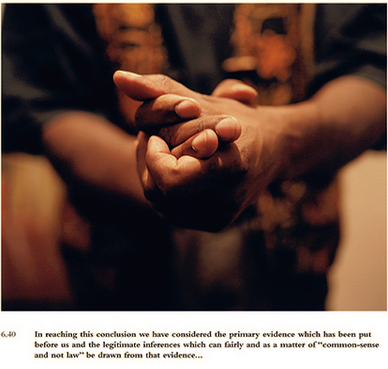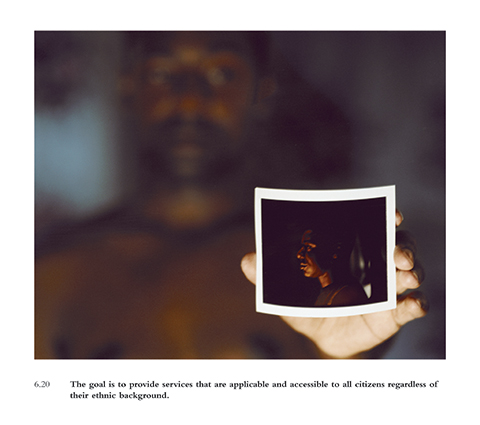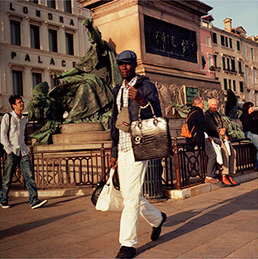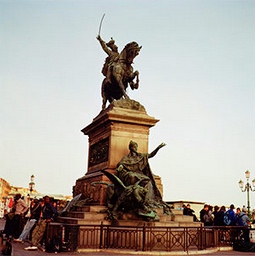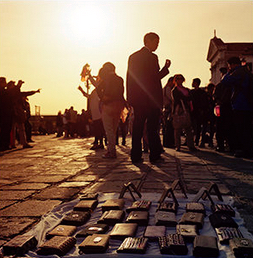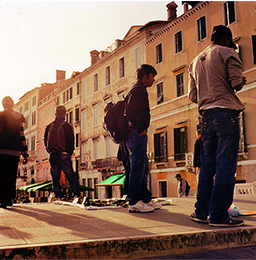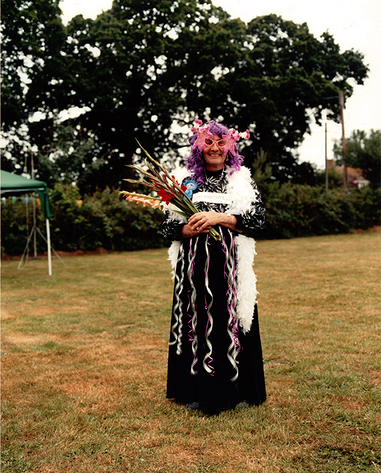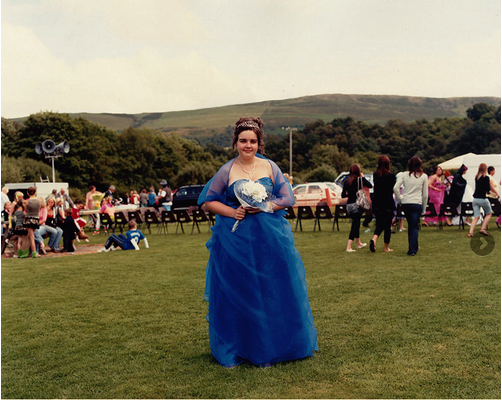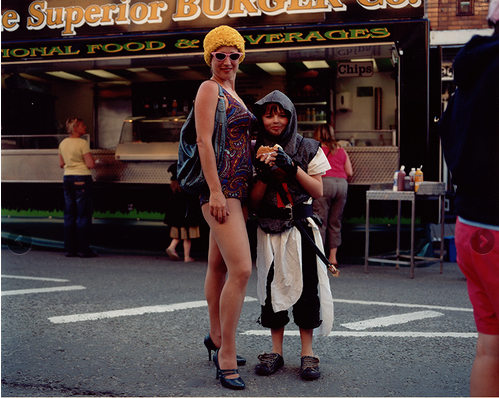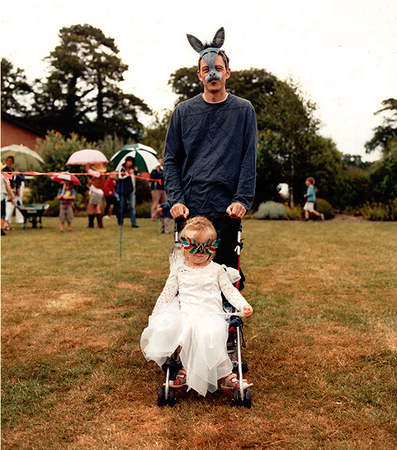Dave Lewis is an artist photographer with a strong interest in visual anthropology. He teaches on the visual anthropology programme, Goldsmiths, University of London. He has an acute sense of how identity and environment connect. Indeed, he often explores in his work how identity, specifically his own black identity, is both shaped by environment and also complicated by it.
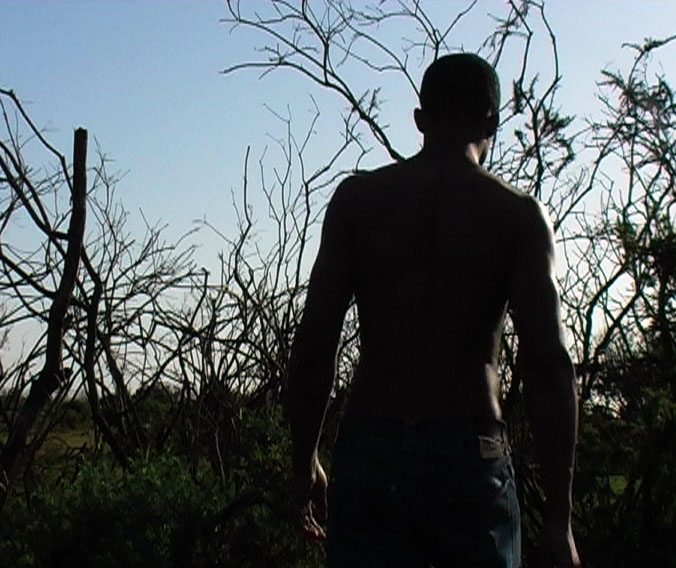
Chapter Six: Racism
Dave made his name in 2001 with a seminal work Chapter Six – Racism. This was a powerful response to the enquiry following the murder of black teenager Stephen Lawrence by white youths in 1993.
The Macpherson, or Stephen Lawrence Enquiry of 1999 had exposed a history of institutional racism in police and society. Dave Lewis’s photographic essay revealed how little justice had been achieved, despite 70 recommendations for societal change addressing racism. For example, 20 years on, police powers of stop and search were still disproportionately directed against black and minority ethnic people.
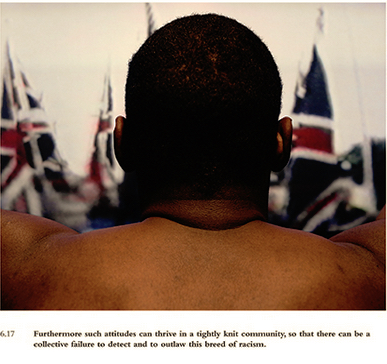
Place, environment, politics
Subsequently Dave has exhibited photographic projects that continue with the politics of race but thinking also about the politics of identity. Place, environment and the body figure very much in his thinking around self-representation. His photographic images and writings explore an identity which crosses cultures, geographies and time. Here, following, is a project he undertook for the Venice Biennale in 2017.
Once Removed
This series of photographs portray the artist appearing in 1950s retro-style, as a smart Caribbean visitor. The project concerns his identity as a black man, traveller, stranger, tourist. The work is about cycles of migration. Is he possibly himself, a migrant?
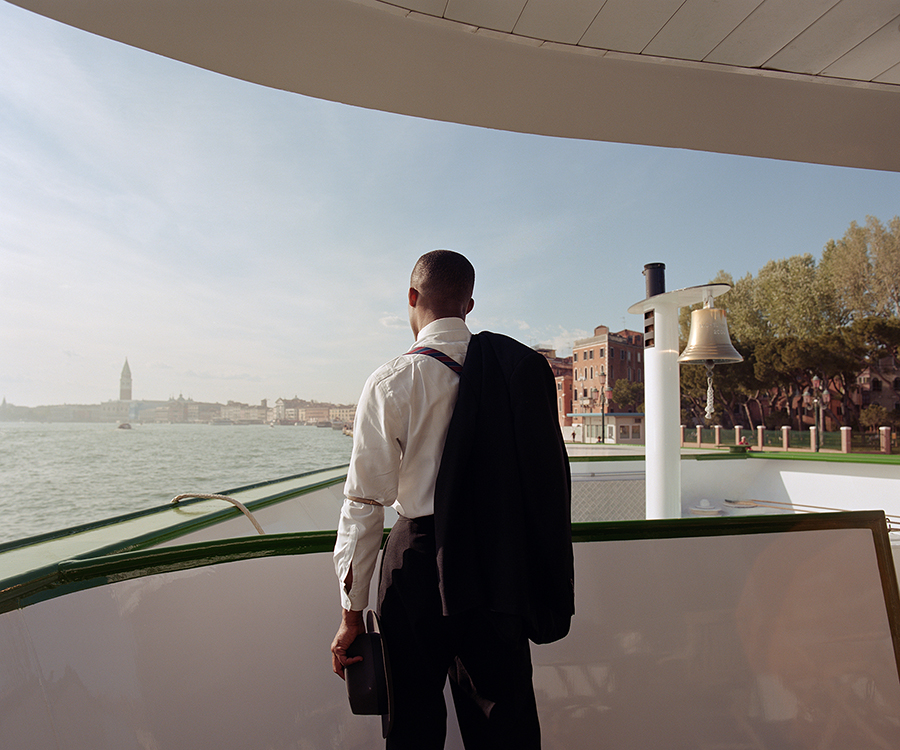
Cycles of migration
As our Caribbean visitor observes the beauties of contemporary Venice, he is also close to its current migrant population. The smaller images alongside portraits of him, show African migrant street traders.
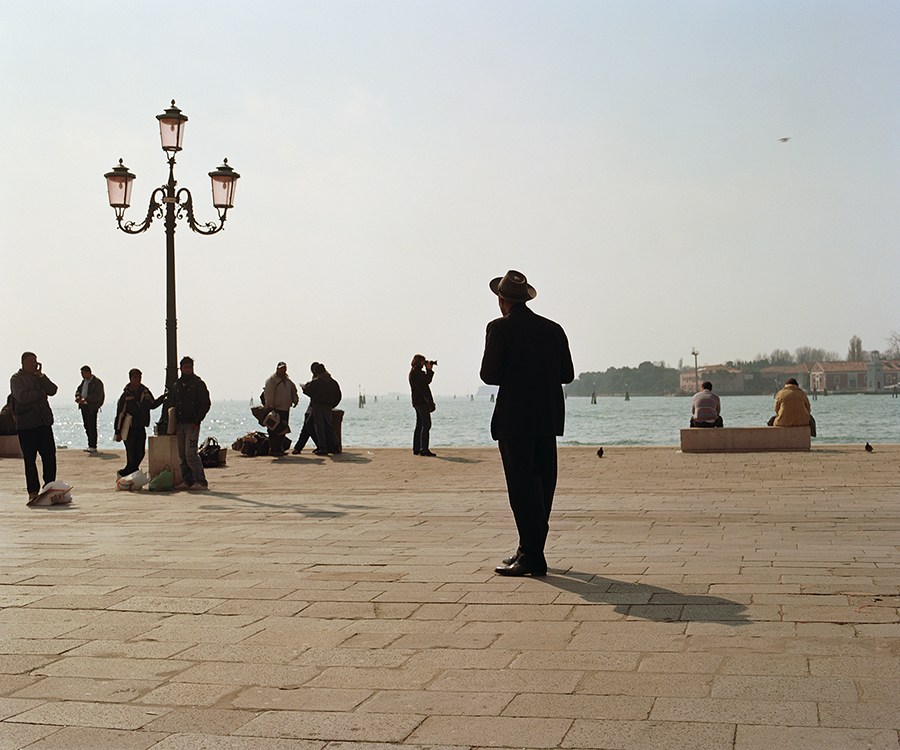
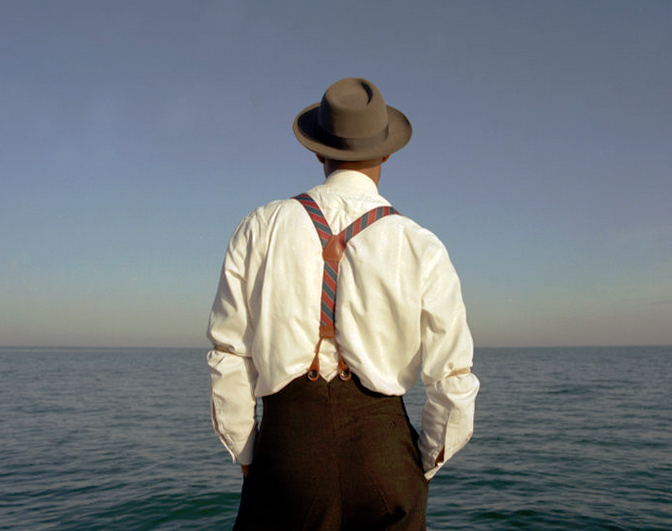
The more we see the juxtaposition of the smart Caribbean tourist alongside the current migrant traders, the more we question. Is this about past ambition and hope as against current starker reality? About shifting status? About the black man as different classes of outsider?
Place and identity
As much a writer as a photographer, Dave reveals with forceful argument the layers of complexity between place and identity. Part of the power of his work is its sense of occasion, and of humour. He can see, and represent both the ritual and the funny side of each situation he is in. It is no less about racism than it was originally, but underlying it is the deep understanding of the anthropologist.
Fieldwork
‘Field Work’, was an earlier commission, from 2010, exploring the contrasting environments of the New Forest in Hampshire and Newtown in mid-Wales. Lewis conducted it under the aegis of Autograph, the black photography organisation, Oriel Davies Gallery, visual anthropology at Goldsmiths , University of London, and Hampshire based, Artsway. He was interested in this project because of his role as an anthropologist. He wanted to find out about people, their stereotypes and to reflect that in photography.
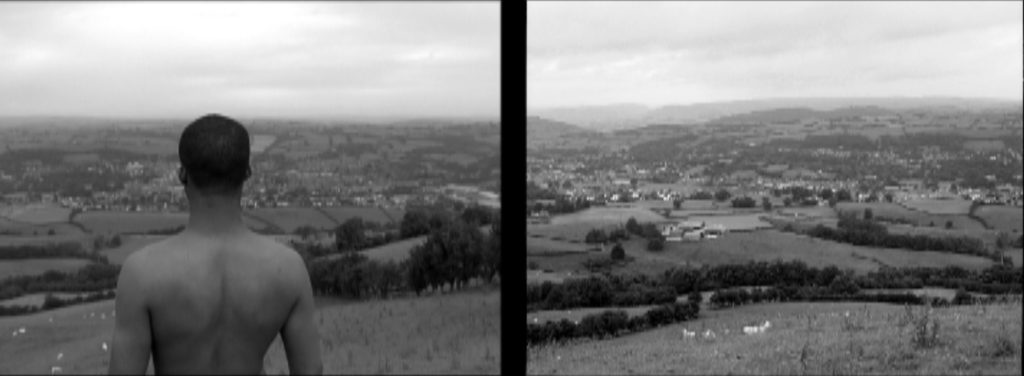
As Dave wrote:
The commissioners wanted ‘an image-maker who can have agency as a
British citizen, meditate and reflect on being a “stranger,” but also move to a place that can be seen as his home domain and look out towards “his” England.’
Lewis therefore took on the role deliberately as a social and ethnic oddity, both in the forest and in Wales. He was willing to explore this explicitly. Indeed, it was anticipated that he would contribute a ‘black cultural perspective’.
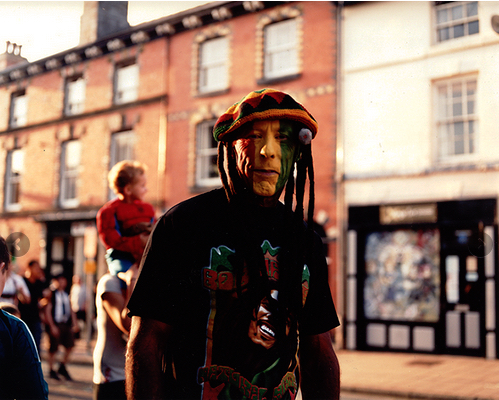
Contributing a perspective as both black and urban
But it was not the confrontation of colour that initially perturbed him, it was his wider cultural differences as an urban-dweller. He felt more strangeness in entering a rural environment than he would have done had he been visiting a foreign city. This gave some of his rural images a sharp, almost anti-picturesque quality.
Oppositions he found generally were more to do with economic inequalities than race. Dave Lewis came up against one of the most thorny of rural issues, all to do with class and money. You can see these in several interviews in his films.
Individuality he found in the context of public celebrations. The eccentricity of dressing up, the extrovert behaviour, the joy and licence of carnival and festivals. These struck him as both familiar and unsettling.
The role of the artist as ‘stranger’
However, quite apart from his colour difference and city identity, it was in his role as an artist that Lewis was able to make the most of his outsider status. It was precisely this that gave him a unique access to see the strange in the familiar. He followed stories around the social networks through which people developed a sense of belonging. His images demonstrate how this equally marked out their individuality and difference, from each other and from him.
The description of this project above, partly came from Dave’s own writing, and also from Veronica Sekules, Cultures of the Countryside, chapter 5, The Global Village; Routledge, 2019.
My Father’s Land
Often Dave has concentrated specifically on his own identity as a 2nd generation man of Caribbean heritage living in London. Is he more British than Caribbean, or vice-versa? His surname is Welsh, what part does that play as part of his self-identification? Is he entirely urban or is part of him steeped in countryside cultures that he inherits from his parents? This thinking was evident in Fieldwork, where he explored his own identity alongside his subjects.
Exploring his Caribbean roots
However, most of all, he is currently exploring identity in terms of his Caribbean roots. It has become of great importance to him not just to explore where he is from, but how he still fits there.
In returning to the countryside of Granada, his father’s land, he is finding himself equally part of it and distant. His upbringing and current urban life is very different. Everything in Granada is both familiar and strange. This is what he is planning to explore over the next few years.
Auto-ethnography
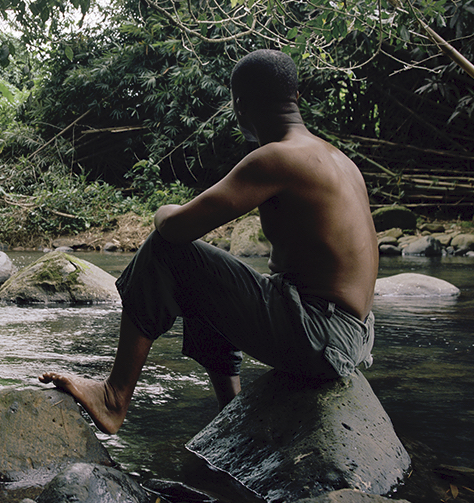
In this work, he is continuing his role as an anthropologist, but turned on himself. It is in effect an auto-ethnography. As with his work in Wales in 2010, he is adopting the role of the stranger, but watching himself now. In characteristic back view, we see him gazing on landscapes. We can almost tell that he is both comfortable there and yet still an outsider, an observer. He represents objects and scenes as tender insights. Yet equally, they appear as if for the first time for both of us.



